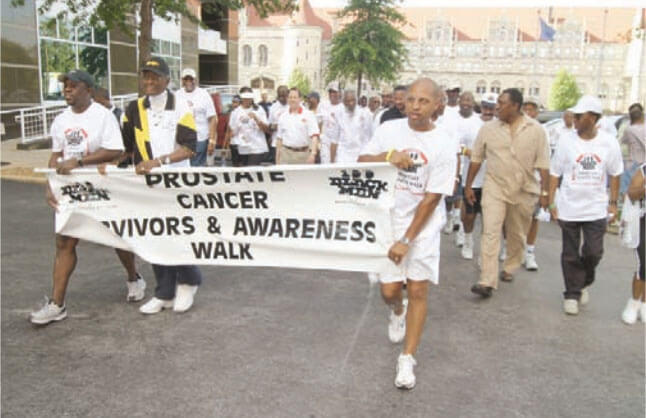The cancer research community is charged with a remarkable challenge. Not only do we conduct research on the underlying causes, prevention, control, diagnosis, and treatment of disparities in cancer, but we must ensure this research improves cancer outcomes for everyone. The truth is some population groups are not benefiting from the substantial strides in cancer research and treatment. For example, African Americans have the highest death rate and shortest survival of any racial and ethnic groups in the U.S. for most cancers. Cancer is also the number one killer of Hispanics and Latinos and Asian American women.
As the director of the Center to Reduce Cancer Health Disparities (CRCHD) at the National Cancer Institute (NCI), I’m committed to exploring the whole gamut of cancer health disparities (CHD) and believe it is not only important to research disparities, but it is equally critical to diversify the biomedical workforce and better align culturally sensitive interventions with diverse communities.
Making a Difference
During the summer of 2014, we held our annual Program Meetings to assess our progress and take stock to see what is working and what is not. We’ve accomplished a lot together in the past year. Our principal initiatives are driven by aims to diversify the cancer research workforce, develop and conduct studies that provide a more precise picture of the biological roots of cancer disparities, strengthen partnerships within regions, and help researchers think about their work in a broader context and ensure that the community is engaged in all aspects of the research process.
But, there’s still much work to be done.
At our Continuing Umbrella of Cancer Research Experiences (CURE) Professional Development Workshop, 90 of our young investigators and CURE scholars, across academic and investigator levels, had an opportunity to network and share research highlights in basic science, community-based participatory research, and clinical research. The two-day workshop is just one of the scientific training opportunities that the CURE program offers. The CURE scholars observed and participated in a mock grant review, and practiced their presentation skills during a scientific poster session.
The interactive presentations and discussions at the Partnerships to Advance Cancer Health Equity (PACHE) meeting was focused on the future of the program and how members can continue to work together to build research and training capacities at underrepresented-serving institutions, as well as enhance outreach to racially and ethnically diverse communities. The participants discussed ways to grow and strengthen training opportunities in cancer and cancer health disparities research, as well as enhance professional development and increase networking among partnership-supported researchers, trainees, and program staff to help secure future scientific collaborations. Read more about the 2014 PACHE program meeting.
Over 70 community-based researchers and program staff members gathered at the Community Networks Program Center (CNPC) annual program meeting to report on the progress of pilot and full research projects. Aimed at bringing cancer prevention and control strategies to underserved communities (where such efforts are desperately needed), CNPC participants openly shared innovative and effective ways to engage and reach underserved communities with cancer advances. Everyone agreed that solutions to cancer health disparities can frequently be found in the communities themselves, and that gaining the trust and buy-in of the community is essential to this kind of research.
At the National Outreach Network (NON) Program Meeting, participating Community Health Educators (CHEs) pointed to more effective ways of reaching culturally diverse and at-risk communities–to motivate individuals to seek cancer prevention and screening services that can save their lives. Participating CHEs also stressed that integration within their parent institution and the communities they serve were critical to the success of their outreach efforts, and they shared ideas on how to strengthen linkages across the national, regional, and local levels so all can be unified in the fight to end CHD.
How You Can Help
- Apply to CRCHD opportunities for research funding, and diversity training
- Share resources about cancer health disparities
- Join the cancer #healthdisparities conversation on Twitter
Sanya A. Springfield, Ph.D.
Director, CRCHD
Read more about Dr. Springfield

